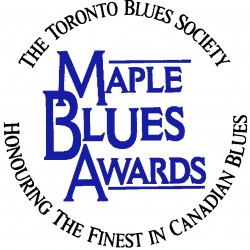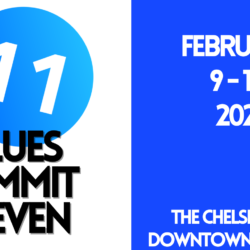April 2021 – Chris Cain
What I love most about the blues is that every performer has a unique story – a story usually woven into their life’s work. Cain, from San Jose, grew up in a musical family with blues-loving parents and a Dad who encouraged him to play his guitar from age 8. The household was filled with the sounds of Albert and BB King, Ray Charles and Big Joe Williams. It stuck. Further schooling opened his eyes to jazz sounds and, after mastering the guitar, Cain experimented, learning tenor sax, piano, clarinet and bass. This may account for the full rich sound he brings forward in his brand of the blues, given the added sax (Michael Peloquin, tenor & Doug Rowan, baritone), trombone (Mike Rinta) and trumpet (Jeff Lewis) on half of the tracks.
Produced by Kid Andersen, who doubles on rhythm and acoustic guitar, Steve Evans adds bass, Greg Rahn provides most of the keyboard power while Sky Garcia and Derrick Martin trade off on drums. Cain, aside from writing each of the dozen songs, simply does what he does best – lending his distinctive vocals and tight, tasteful, set-to-broil guitar, front and centre (adding piano/elec. piano, Clavinet and ARP synth as needed).
Here’s hoping this Alligator release will launch Cain into his rightful position in the blues, as this 15-release “newcomer” has been consistently and a little too quietly releasing genius material since 1987. His songs are well constructed around shuffles, slow blues, funk and elements of swing while his lyrics stand out from the competition.
Kicking things off with the upbeat “Hush Money”, Cain keeps his tongue-in-cheek, blending humourous lyrics with the full salvo of horns, redefining the term at the expense of a relationship, sealed with a molten lead and his conversational banter between verses. Likewise, “You Won’t Have a Problem When I’m Gone” showcases Steve Evans’ tight basslines and Greg Rahn’s piano, as Cain delivers another classic blues relationship-gone-wrong, stitched together by his elastic leads. Derrick Martin’s funky drumbeat sets up “Too Many Problems” as Cain’s molten guitar merges with horns and B3 before changing gears at the midpoint with an electric piano detour, underlining the funk. “Down on the Ground” provides one of Raisin’ Cain’s strongest tracks as he slows things down – gospel-style – making the most of his taut, gruff vocal, wrapped in piano and B3, as his guitar wails and stings.
More humour with “I Believe I Got Off Cheap” as his wall o’ horns join a most contemporary message outlining yet another relationship-gone-sour, making a good case for Greyhound in the bargain. Known for his guitar strengths, Raisin’ Cain is also a showcase for Cain’s vocals. Case-in-point, the slowed down, delicate approach to “Can’t Find a Good Reason” highlights the power of his vocal and how well it fits each lyric, his guitar line carrying the lion’s share of the melody throughout. The blues-friendly theme of sour relationships is all the better for “Found a Way to Make Me Say Goodbye”, yet Cain’s lyrics are anything but typical, his guitar attempting to cauterize all wounds despite a too-heavy reliance on electric keyboards. A fall-down favourite on this generous release is the seemingly autobiographical “Born to Play”.
There’s no denying his ongoing tribute to his idols, his B.B. King-like, spoken intro explaining his birthright to the blues while his robust vocal remains soulful and a perfect fit, accentuated by his uptown horns. Another focal point of this release is Cain’s take on “I Don’t Know Exactly What’s Wrong with My Baby”. Incredibly thoughtful lyrics reveal a different side of the man. Rahn’s Fender Rhodes and Cain’s guitar seem organically connected, Cain’s solos dripping with heartfelt emotion. The slightly jazzy “Out of My Head” reveal additional influences as Evan’s bassline and backing horns showcase a more sophisticated composition, for a different slice of the same well-baked pie. “As Long As You Get What You Want” proffers another B.B.-like approach, with backup vocals from Andersen’s wife, Lisa. Rahn’s dominant Fender Rhodes, however, seems to sap the strength of its blues power.
The funky “Space Force” feels slightly out-of-place – Cain’s use of an ARP synth as lead instrument is a bit jarring after such a solid serving of quality blues. As the ARP’s sound conjures the image of George Duke in a spacesuit, Andersen’s accompanying melodica resembles a Stevie Wonder outtake and the song’s keyboard-dominated sound makes for an awkward fit. Still, it’s but an instrumental detour and, like the Space Force itself, Cain & Co. are justified in having a little fun. (Eric Thom)










